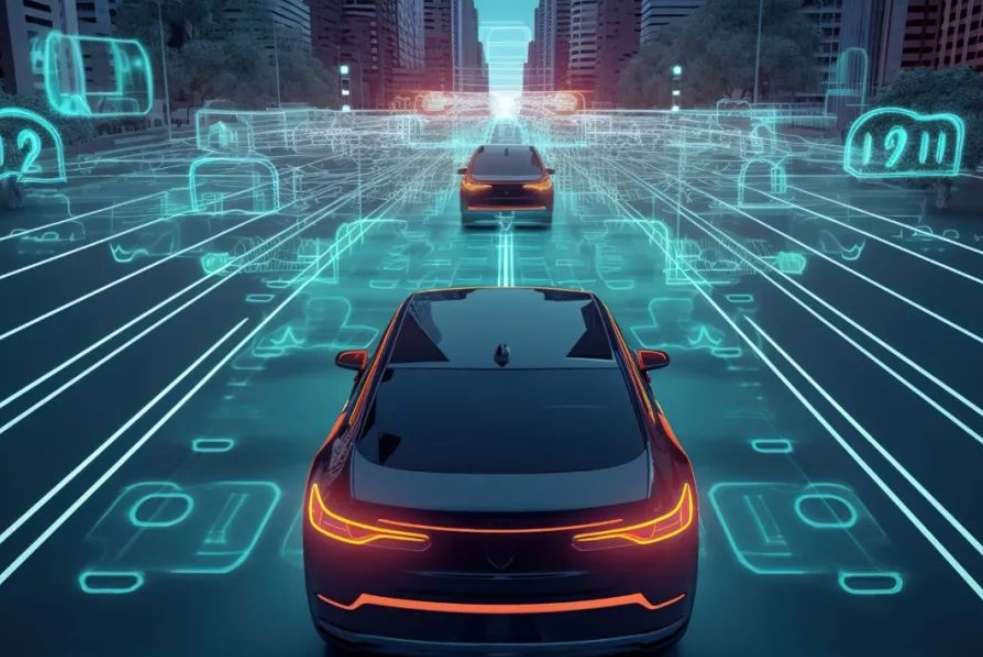The recent endeavors by Tesla to expand its operations in India mark a significant milestone not just for the electric vehicle (EV) manufacturer, but also for the Indian automobile market as a whole. As Tesla moves closer to establishing a manufacturing presence in the country, the implications of this shift resonate far beyond mere corporate strategy; they touch upon India's ambitious goals for economic modernization, sustainability, and energy independence.
In light of recent reports, Tesla is actively seeking land for a production facility that is expected to serve as its foothold in one of the world’s most rapidly growing economies. Following productive discussions between Tesla's CEO Elon Musk and Indian Prime Minister Narendra Modi in the United States, the company is apparently keen on fast-tracking its entry into India, a nation with significant potential for electric vehicle adoption.
According to sources, Tesla has been scouting locations in Maharashtra for its proposed manufacturing site and appears to prioritize areas close to its existing infrastructure. For instance, the company’s offices in Pune are well-placed to facilitate operations. Moreover, Tesla has reportedly identified key sites in the National Capital Region and at the Bandra-Kurla Complex in Mumbai for its showrooms, indicating a multi-pronged approach to market entry. Their recent recruiting efforts, advertised via LinkedIn for mid-level positions such as store managers and service technicians, further bolster this narrative, suggesting that Tesla is not merely weighing its options but is actively preparing to move forward.

However, the road to significant investments in India has been rocky for Tesla. The company has been eyeing the Indian market for nearly a decade, having initiated local car bookings as early as 2016. The establishment of a local subsidiary in early 2021 was, at that time, a beacon of hope for fans and stakeholders anticipating Tesla's long-awaited arrival. However, persistent challenges, particularly concerning high import tariffs on EVs, resulted in prolonged negotiations and delays.
The Indian automotive sector's landscape is intricate; domestic manufacturers have historically resisted Tesla's entry over fears that it could undermine local electric vehicle initiatives. Still, with recent policy shifts by the Indian government, including a reduction in import tariffs for companies committing significant investments, the circumstances may be ripe for Tesla’s operational launch.
For instance, New Delhi's recent decision to cut tariffs on high-end EVs—now down from an exorbitant 110% to about 70%—demonstrates India's commitment to attracting foreign investment while striving to build a robust domestic EV market. Such changes are crucial, especially when considering that many developed economies, and their auto industries, are leaning towards making electric vehicles mainstream, and consumers are increasingly demanding cleaner, sustainable transport options.
The potential benefits of Tesla’s operations in India extend into the broader context of the global automotive industry. With Musk's strategic vision likely aiming for a price point below $25,000 for fundamental Tesla models, the company could play an innovative role in shaping consumer habits and expectations in the Indian EV landscape. As the country looks to enhance its carbon footprint reduction efforts—a commitment underscored by its standing as the third-largest greenhouse gas emitter in the world—an influx of EV technology and best practices from Tesla could catalyze a more vibrant market.
Currently, electric vehicles only account for a fraction of total car sales in India—around 5.59%—despite governmental ambitions to elevate that number to 30% by 2030. Tesla's entry could serve as a vital catalyst for stimulating demand by introducing competitive models and technology. In contrast, the Indian market has seen a predominance of lower-end models from homegrown firms like Tata and Mahindra, often failing to capture the interest of mainstream buyers. The introduction of Tesla could lead to an enhancement in product variety, pushing native manufacturers to innovate and elevate their offerings.
The competitive dynamics in the EV sector would introduce significant benefits for both consumers and producers. Mahindra Group’s Chairman, Anand Mahindra, has welcomed competition from multinational firms, hinting at the necessity for local companies to adapt and thrive in an evolving landscape. Such inter-company rivalry not only plays into improving technology but can also drive prices down, benefiting consumers who might be apprehensive about the initial investment in electric vehicles.
Furthermore, the Modi government’s vision for green energy has prompted extensive investments in charging infrastructure across India. As part of this strategy, over 20,000 new electric vehicle charging stations are to be established along main roadways. These developments are essential for nurturing a supportive environment for electric vehicle adoption and ensuring that consumers feel they can charge their vehicles conveniently. The recent federal budget has favored manufacturers by eliminating duties on critical components needed for electric vehicles, thereby promoting local production and attracting foreign tech firms.
With projections indicating that more than ten fully electric vehicle models could debut in India this year alone, the landscape is transforming rapidly, and the presence of major players like Tesla is poised to reshape it significantly. Associations like the Federation of Automobile Dealers Associations anticipate that electric vehicle sales could potentially double in the Indian market by 2025 compared to 2024 levels, driven by greater consumer awareness and investment in innovative vehicles.
In conclusion, Tesla’s anticipated entry into the Indian automobile sector is not merely a corporate venture; it signifies a pivotal moment for the country as it navigates towards a greener future. The convergence of market demands, government policy, and international collaboration embodies the essence of progress in the 21st century. As the dialogue between Tesla and Indian authorities continues and recruitment efforts escalate, it remains paramount for all stakeholders—consumers, manufacturers, and policymakers alike—to work hand in hand to foster an environment where sustainable transport can thrive.